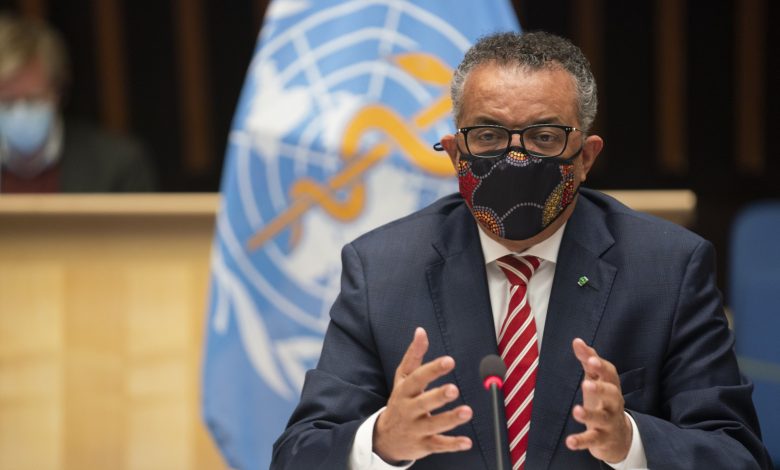
WHO Affirms Need to Adhere to Precautionary Measures
الصحة العالمية تؤكد على ضرورة الالتزام بالإجراءات الاحترازية
QNA
Geneva: Director-General of the World Health Organization (WHO) Tedros Adhanom Ghebreyesus underlined the need to adhere to precautionary measures to prevent infection with the coronavirus (COVID-19), warning that the world is witnessing an increase in new cases for the seventh week in a row, and an increase in deaths.
Speaking at a news briefing on Monday, Tedros said that confusion and complacency in addressing COVID-19 mean the pandemic is a long way from over, but it can be brought under control in months with proven public health measures.
“We, too, want to see societies and economies reopening, and travel and trade resuming. But right now, intensive care units in many countries are overflowing and people are dying and its totally avoidable,” he stressed.
Tedros noted that several countries in Asia and the Middle East have seen large increases in cases, warning that this disease is not flu. “Young, healthy people have died. And we still don’t fully understand the long-term consequences of infection for those who survive,” he stressed.
“Many people who have suffered even mild disease report long-term symptoms including fatigue, weakness, “brain fog”, dizziness, tremors, insomnia, depression, anxiety, joint pain, chest tightness and more, which are symptoms of long-COVID,” he added.
Meanwhile, the WHO Director-General stated that the COVID-19 pandemic has shown that global manufacturing capacity is not sufficient to deliver vaccines and other essential health products quickly and equitably to where they are needed most.
He noted that had met with several leaders from Africa earlier today for a discussion about how to increase local vaccine production.
قنا
جنيف: أكد الدكتور تيدروس أدهانوم مدير عام منظمة الصحة العالمية، على ضرورة الالتزام بالإجراءات الاحترازية والتباعد للوقاية من الإصابة بفيروس كورونا /كوفيد-19/، منبها إلى أن العالم يشهد ارتفاعا في حالات الإصابات الجديدة بالفيروس للأسبوع السابع على التوالي، كما يشهد ارتفاعا في حالات الوفيات.
وقال أدهانوم، في مؤتمر صحفي اليوم، إن “وحدات الرعاية الفائقة تشهد اكتظاظا وأعدادا كبيرة من الوفيات”، مشيرا إلى ارتفاع الإصابات في الشرق الأوسط وآسيا.
وحذر مدير عام منظمة الصحة العالمية من مرض /كوفيد-19/، قائلا إنه “ليس إنفلونزا، بل هو مرض قد يترك آثارا طويلة المدى على الأعضاء الحيوية كالأعصاب”، لافتا إلى أن هذا المرض لا يقتل فقط كبار السن، حيث توفي الكثير من الشباب بسببه.
وأضاف أن هذه الجائحة أثبتت ضعف القدرات الإنتاجية للقاحات في العالم، مبديا استعداد المنظمة لتقديم الدعم التقني لجميع البلدان التي تسعى لتصنيع اللقاحات محليا.
وأوضح أنه اجتمع بعدد من رؤساء الدول التي تسعى وتبذل الجهود لذلك.. مشيرا إلى اجتماع تعقده الدول الإفريقية للاتفاق على نهج مشترك للنهوض بالقدرات الإنتاجية للقاحات.



